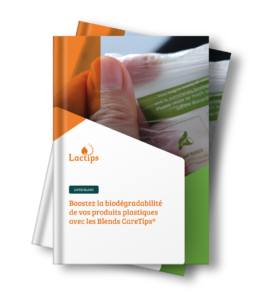As by-products of petrochemicals, synthetic polymers consume a huge amount of oil each year: 44 million tons in Europe alone! In response to the climate emergency, the plastics industry is now seeking to reduce its dependence on oil. To achieve this, it can rely on recycling but also on the use of bio-based materials.
Moreover, some of these solutions are also biodegradable, which enables carbon circularity!
Petro-based and bio-based plastics: Similar technical requirements
The environmental impact of plastic is undeniable. However, living in a world without plastic is not only utopian but also undesirable, as these materials possess unmatched properties in terms of technical performance, processability, and cost.
While it may not be possible to eliminate plastic, it is entirely feasible to significantly reduce its environmental impact by substituting petroleum-based plastic with bio-based materials and incorporating 100% biodegradable substances.
The replacement of petro-based plastics with bio-based alternatives is now a reality. Because they have similar properties (mechanical, chemical, etc.), these materials are gradually finding their place in the industry.
Here are some examples:
| Traditional plastic | Possible substitute | Application |
| PET | BioPET | Water bottles |
| PE | BioPE | Shampoo bottles, garbage bags |
| TPE | BioTPE | Shoes, watches bracelets, sports equipement |
| PA | BioPA | Technical polymers |
|
Truly biodegradable bio-based products are entering the market! The previous list is not exhaustive, and many other bio-based solutions are under development. But in addition to being bio-based, some are also biodegradable! This is the case with CareTips®, the solution from Lactips that is already on the market! |
Identical processing methods
Bio-based materials are fully compatible with traditional plastic processing techniques (injection molding, blow molding, thermoforming, etc.).
For bio-based materials that are chemically equivalent to traditional plastics (see the previous table), the processing recommendations are therefore identical, with only a few minor adjustments.
Bioplastics: overall environmental performance
In terms of CO2 emissions, bio-based plastics have a lower carbon footprint compared to petro-based plastics. But beyond CO2 emissions, other environmental impact indicators should also be considered!
End-of-life considerations
From a circular economy and end-of-life perspective, the use of bio-based plastics allows for a true “closed-loop” system, thanks to mechanical recycling as well as chemical recycling.
Moreover, if these bio-based plastics are also biodegradable, another form of recovery becomes possible: organic recycling.
The recovery of organic material, in the form of high-quality compost, then becomes feasible through composting or methanization.
Substituting petro-based plastics: A challenge!
New bioplastics: undeniable industrialization potential
Bio-based and biodegradable materials can be processed using the same methods. However, for the most innovative materials, whose chemistry differs and which have a narrower processing window (in terms of temperature), some R&D work may be necessary to achieve truly optimized results.
Once this step is completed, production poses no issues.
Production rates similar to traditional materials can then be achieved!
Biodegradable plastics are not always 100% biodegradable
In reality, biodegradable plastics require specific conditions to break down, and many factors come into play (temperature, humidity, thickness, presence of bacteria, etc.).
Some plastics labeled as biodegradable can therefore take a long time to decompose!
However, there is a solution to boost the biodegradability of these materials: incorporating a fraction of CareTips®, our 100% bio-based and biodegradable natural polymer, into various environments.
Unlike other biodegradability boosters, CareTips® is versatile: it is compatible with PLA, PBS, and many other materials!
Additionally, since CareTips® is made from casein, it naturally produces methane as it degrades. This makes it a methanization booster, a benefit that sets it apart from other bioplastics in the context of French regulations on organic waste collection!
Do you want to boost the biodegradability of your plastic products?




